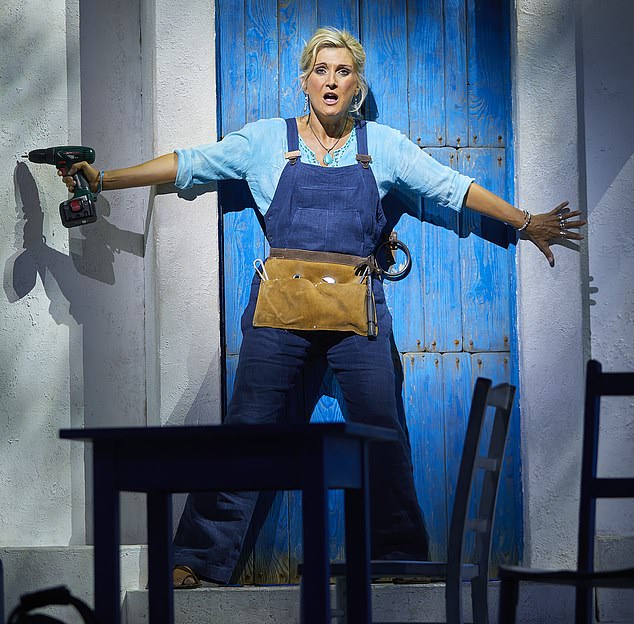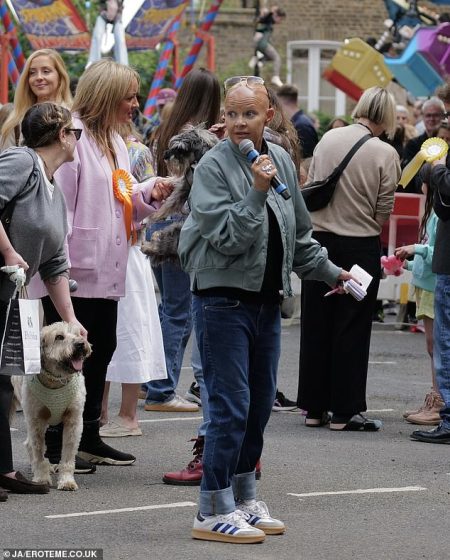The BBC recently came under fire for replacing an actress with Artificial Intelligence on a documentary, causing concerns within the acting community. The decision was made in the context of a highly sensitive program featuring a contributor who is unable to speak due to their deteriorating health. The BBC stated that they worked closely with the family to explore options for representing the contributor’s voice, ultimately agreeing to use AI for a brief section to recreate a voice that could no longer be heard. This move has sparked a broader discussion about the impact of AI on the acting industry and the rights of performers.
Sara Poyzer, a prominent actress known for her role in Mama Mia, received an email informing her that the BBC had decided to use an AI-generated voice instead of her for a role. The BBC assured that the technology would be clearly labeled in the film to transparently inform viewers. Poyzer has had a successful career in the West End and worked with the BBC for over 20 years on various projects. The decision to replace her with AI has prompted support from industry professionals who have experienced similar situations, highlighting the challenges faced by actors in the evolving landscape of technology in entertainment.
The use of AI in place of human talent raises questions about the role of technology in creative industries. The BBC’s principles on the use of AI emphasize prioritizing talent and creativity, acknowledging that technology cannot fully replicate human creativity. The broadcasting company aims to work with artists and creators to explore ways of utilizing Generative AI to enhance storytelling and push boundaries. However, concerns have been raised about the impact of AI on performers’ rights and the devaluation of human skills in the industry, particularly in voiceover work.
Equity, the performing arts workers union, launched the ‘Stop AI Stealing The Show’ campaign to raise awareness of performers’ rights in relation to Artificial Intelligence. The campaign has gained momentum in response to instances of AI being used to replace human actors, threatening job opportunities and potentially diminishing the value of artistic work. Voice Squad, a voiceover agency, expressed disappointment over the BBC’s decision to use AI on the documentary, citing concerns about the impact on the industry and the skill and training required for voice artists. The debate around AI’s role in entertainment raises complex ethical and professional considerations that require careful navigation by industry stakeholders.
The controversy surrounding the BBC’s decision to replace an actress with AI reflects broader tensions within the creative industry regarding the intersection of technology and human talent. While AI has the potential to enhance storytelling and push creative boundaries, concerns about job displacement, devaluation of human skills, and performers’ rights have come to the forefront. The use of AI in this documentary illustrates the complexities of balancing technological advancements with respect for artists and the craft of acting. Moving forward, ongoing dialogue and collaboration between industry professionals, broadcasters, and unions will be crucial in navigating the impact of AI on the entertainment landscape.
As the entertainment industry continues to evolve with technological advancements, the role of AI in creative production remains a topic of debate and scrutiny. The BBC’s decision to use AI in place of an actress has sparked conversations about the implications for performers, their rights, and the future of storytelling. Transparency and collaboration between stakeholders will be essential in addressing the ethical, professional, and creative considerations surrounding the use of AI in entertainment. By engaging in meaningful dialogue and promoting the value of human creativity, the industry can navigate the challenges and opportunities presented by AI in a way that upholds the integrity and artistry of acting.














